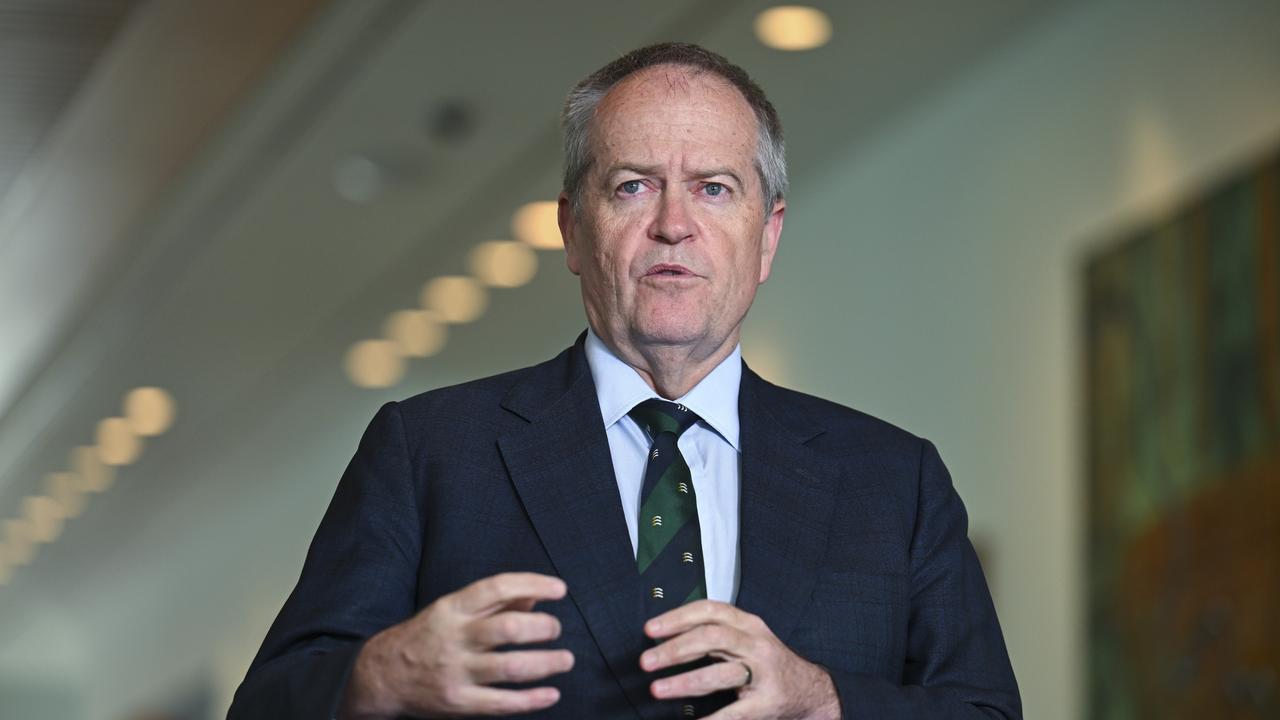Craig Emerson defiant as unis bristle at $2.3bn loss
UNIVERSITIES have united to condemn the Gillard government's weekend cuts, which will rip $2.3 billion out of higher education and student support.
UNIVERSITIES across the country have united to condemn the Gillard government's weekend cuts, which will rip $2.3 billion out of higher education and student support.
However, Higher Education Minister Craig Emerson strongly rejected claims by Universities Australia that the cuts were the worse since the Howard government's 1996 budget.
"I substantiate my arguments with facts. We have funded record growth; the efficiency dividend only means growth will moderate," Dr Emerson said yesterday.
And he defended the transfer of funds to the proposed Gonski school reforms as in line "with fundamental Labor values", rejecting suggestions that the policy was "class war" aimed at assisting public schools at the expense of universities.
"This isn't class warfare, it is equity," he said.
"We have record enrolments and a substantial increase in the number of students who are the first in their family to attend university."
While refusing to promise a Coalition government would roll back the cuts, opposition education spokesman Christopher Pyne described them as "all about (Labor's) re-election plan and not an education plan".
"University students are being expected to pay for the announcements being made today. So they are robbing from the future to fund the next 150 days, as part of the Prime Minister's strategy."
Mr Pyne said the opposition had no plans to re-establish a cap on university places. However, university leaders warn the reduction of $900 million to their budgets should lead to universities abandoning Canberra's policy of increasing enrolments, to protect the quality of their courses.
Overall, undergraduate enrolments are up by 34 per cent, or 146,000 places, since 2007 under the government's open-access policy. They say the budget savings from fewer students should go to universities to support quality.
"The government has to pause the growth," Queensland University vice-chancellor Peter Coaldrake said yesterday.
"You simply can't grow the factory size without ensuring that the system is sustainable."
Fred Hilmer, vice-chancellor of the University of NSW and chairman of the Group of Eight elite universities, added that the existing uncapped enrolments process was "madness". Uniform entry standards for school-leavers based on exam scores would save Canberra money, but the government was "deaf" to such proposals.
University of Adelaide vice-chancellor Warren Bebbington warned that cutting revenue would encourage universities to enrol even more students to compensate for the cuts, thus reducing the government's expected savings while further cutting quality.
"The University of Adelaide will not do this but there will be universities that expand enrolments to meet their obligations," he said. "This will mean taking students with ever-lower entry scores who are ill-prepared for university study."
Deakin University vice-chancellor Jane den Hollander said she was opposed to reintroducing across-the-board caps on student numbers, warning that would hurt access in regional areas, such as Deakin's campus in Geelong. This was because Deakin would be more able to quickly fill a quota at its campus in more-populous Melbourne.
"Geelong would always miss out," she said.
James Cook University vice-chancellor Sandra Harding also warned that cuts would affect course quality, saying, "for every student you take in, you get a lower number of dollars".
When added to $1bn cut to research and other support across announced late last year, this was "a double whammy", she said.
Professor Harding said that JCU would now have to "look under every rock" for savings, including in negotiations with staff for a new pay deal.
She said the impact of the cuts on the fiercely competitive market for international students should not be underestimated.
Professor Harding rejected Dr Emerson's appeal to Labor values: "The last thing I will say is that schools should not be funded well but, goodness me, we need a finishing-off (of) the education process that serves the nation".
"The idea of changed funding priorities is difficult to understand," she said.
Amanda Vanstone, the Howard-government higher education minister who delivered the 1996 cuts, also questioned the efficiency and effectiveness of the proposals in raising money. She said ending the discount for upfront payment of the HECS student contribution to course costs, commonly repaid through the tax system after graduation, would mean a "hit to the budget". "I hope they have done their numbers," she said.
She added that the income threshold at which graduates began to repay their student debt - $50,000 - was too high, saying it should start at the minimum wage of $31,000 or even the pension, at about $19,000 per annum.
"We don't invest in kids who do not go to university and yet we do not expect graduates to start paying their HECS debt back until they are earning well over the minimum wage," she said.
Dr Emerson said it was "standard operating procedure" for ministers not to comment on budget plans and refused to answer whether his Saturday announcement was the only hit universities would take this year. However, well-placed higher education sources suggest no further cuts were expected in the budget.


